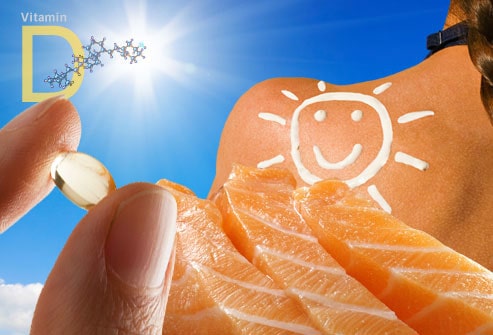What effects does birth control pills have on your ability to gain muscle as a woman? I attempt to give some useful info in this video below:
Below is some -but not all – of the info and data I was looking at to help with my comments in this vid for the more science minded:
Effect of administration of oral contraceptives on the synthesis and breakdown of myofibrillar proteins in young women.
Scand J Med Sci Sports. 2009 Oct 22.
Hansen M, Langberg H, Holm L, Miller BF, Petersen SG, Doessing S, Skovgaard D, Trappe T, Kjaer M.
Institute of Sports Medicine, Bispebjerg Hospital, Copenhagen, Denmark.
Abstract
Oral contraceptive (OC) treatment has an inhibiting effect on protein synthesis in tendon and muscle connective tissue. We aimed to investigate whether OC influence myofibrillar protein turnover in young women. OC-users (24+/-2 years; Lindynette((R))n=7, Cilest((R))n=4) and non-OC-users (controls, 24+/-4 years n=12) performed one-legged kicking exercise.
The next day, the myofibrillar protein fractional synthesis rate (FSR) was measured using stable isotopic tracers ((13)C-proline) while the subjects were fed standardized nutrient drinks. Simultaneously, a marker for myofibrillar protein breakdown, 3-methyl-histidine (3-MH), was measured in the interstitial fluid of the vastus lateralis. Measurements were performed in both legs.
In general, myofibrillar protein FSR was lower in OC-users (two-way analysis of variance, P<0.05), although the difference seemed to depend on the OC type. Interstitial 3-MH in the skeletal muscle was not different between groups and did not vary by OC type. Exercise did not change myofibrillar protein FSR or 3-MH concentrations.
Serum androstenedione and bioavailability of testosterone were lower in OC-users. In conclusion, the results indicate that the use of OC has an inhibiting effect on myofibrillar protein synthesis and the magnitude of the effect may depend on the type of OC. In contrast, there was no effect of OC on myofibrillar protein breakdown in the fed state.
________________________
More damaging, but also a write up from a poster session at conference then fully published data from a journal:
Birth control pills can limit muscle-training gains
Science News
By Janet Raloff
Some female athletes may pay a price for using oral contraception: lower strength gains from resistance exercise. These muscle-building exercises depend on lifting weights (like barbells and those in the big machines at your local gym) or working against tension bands and bars (like those in Bowflex devices).
Personal trainers have long noted that all women don’t garner the same benefits from such exercise and there has been a suspicion that genetics might underlie differences. But exercise physiologist Chang Woock Lee and his colleagues at Texas A&M University wondered if other lifestyle factors might also play a role. And at the Experimental Biology meeting in New Orleans, this week, Lee identified birth control pills as a major suspect.
In an earlier study, Lee’s group noted that many young female athletes reported using oral contraception. These pills have been specifically formulated to alter a woman’s steroid-hormone levels. Since certain steroids can affect how efficiently the body bulks up and gains muscle, Lee wondered whether these pills might also limit strength gains.
So, three times a week for 10 weeks, the researchers had 73 young women (18 to 34 years old) complete 13 different exercises. The regimen was intense, working muscles throughout the body. None of the recruits had been regularly working out beforehand. But they sure were now. Each had to complete her resistance training against weights that were individually tailored to work her muscles at 75 percent of their maximum strength.
Thirty-four of the recruits were taking some type of oral contraceptive. And as a group, they gained 2.1 percent muscle mass over the trial — or 40 percent less than the group not on the pill. So I asked Lee: What do you think is going on?
One clue: Both before and after the trial, he found, women using oral contraception had dramatically lower blood levels of natural anabolic — as in muscle-building — hormones than did recruits not on the pill. The anabolic hormones included DHEA and its more abundant sulfated form, DHEAS. Compared to non-pill-users, women taking oral contraceptives also had substantially higher concentrations of cortisol, a hormone associated with the breakdown of muscle.
So resistance training “did not rescue” this adverse hormone profile in the pill users, Lee points outs. And, he suspects “those hormone differences might be the underlying factor” accounting for why women on the pill gained less muscle.
But that’s not the end of the story. Further analysis showed that not all pill users had an equally hard time gaining muscle through exercise. So Lee analyzed the formula for each woman’s contraceptive and found that many types contained progestins — a synthetic form of progesterone, a natural female sex hormone. In tests, he showed that these synthetic hormones bind to the androgen receptor in cells — the same receptor that binds male sex steroids, such as DHEA and DHEAS.
Lee worries that if progestins dock with a receptor that DHEA would normally have turned on, they could essentially block the true androgen’s ability to trigger muscle growth.
Not all progestins were equally effective at this binding, however. So Lee grouped the contraceptives on the basis of whether their progestins exhibited low, medium or high androgenicity (i.e. androgen-receptor binding). And then a really striking difference emerged.
Women who took pills containing low-androgenicity progestins acquired muscle through exercise as effectively as did women not on the pill. But women whose oral contraceptives contained medium- or highly androgenic progestins attained less than a 0.5 percent gain in muscle mass over 10 weeks — a far cry from what the others achieved. (By the way, Lee didn’t divulge which brands of contraceptives performed which way, so please don’t write me asking.)
What all this means, he says, is that for women taking certain brands of the pill, the difference in strength-building from exercise could “make a difference in the color of her medal.” For the rest of us, he says, getting stronger would just require that we work “much harder.”
___________
Abstract from the above study:
Oral Contraceptive Use Impairs Muscle Gains in Young Women
Chang Woock Lee1, Mark A. Newman2 and Steven E. Riechman1,3
1 Health and Kinesiology, Texas A&M University, College Station, TX
2 Human Energy Research Laboratory, University of Pittsburgh, Pittsburgh, PA
3 Nutrition, Texas A&M University, College Station, TX
ABSTRACT
Background: Many active young women use oral contraceptive (OC) yet its effect on their body composition and exercise performance has not been thoroughly studied. We examined the effects of oral contraceptive on muscle responses to resistance exercise training (RET).
Methods: 2 groups of 18-31 year old subjects (OC: n=34, no OC: n= 39) underwent 10 week whole-body RET (3x/week, 3 sets, 6-10 reps, at 75% of max strength). Body composition was determined using hydrostatic weighing. Blood samples were taken before/after the training and assayed for DHEA, DHEAS, cortisol, and IGF1.
Results: There were significant differences in lean mass gains (OC: 2.1±2.1%, no OC: 3.5±3.2% / OC: 1.0±1.0kg, no OC: 1.6±1.4kg, p<0.05). Plasma concentrations of DHEA, DHEAS, and IGF1 were significantly lower and cortisol was elevated in OC (DHEA: OC 9.5±4.4, no OC 13.6±4.6 / DHEAS: OC 1451±685, no OC 2196±1008 / IGF1: OC 163±42, no OC 239±126 / cortisol: OC 33.4±10.8, no OC 24.3±9.4, ng/ml, p<0.05). There also were significant differences in lean mass gains depending on androgenicity of the progestin in OC (low=2.5%, medium/high=0.3%, P<0.05).
Conclusion: Oral contraceptive use impaired muscle gains in young women which was associated with lower DHEA, DHEAS and IGF1 and higher cortisol. The diminished lean mass gain may be related to the androgenicity of progestin which may bind to androgen receptor and inhibit its function.
Sources:
http://www.fasebj.org/cgi/content/meeting_abstract/23/1_MeetingAbstracts/955.25
-OR-
http://www.the-aps.org/press/releases/09/16.htm
Will Brink is the owner of the Brinkzone Blog. Will has over 30 years experience as a respected author, columnist and consultant, to the supplement, fitness, bodybuilding, and weight loss industry and has been extensively published. Will graduated from Harvard University with a concentration in the natural sciences, and is a consultant to major supplement, dairy, and pharmaceutical companies.
His often ground breaking articles can be found in publications such as Lets Live, Muscle Media 2000, MuscleMag International, The Life Extension Magazine, Muscle n Fitness, Inside Karate, Exercise For Men Only, Body International, Power, Oxygen, Penthouse, Women’s World and The Townsend Letter For Doctors.
He’s also been published in peer reviewed journals.
Will is the author of the popular e-books, both accompanied by private members forum access , Bodybuilding Revealed & Fat Loss Revealed.
You can also buy Will’s other books on Amazon, Apple iBook, and Barnes and Noble.







Glad to see you are indeed a Harvard grad since you are showcasing the mug in the video. . .Not only birth control pills, but what about we post-menopausal women on estrogen when the cards already seem stacked against us. . .Any thoughts?
In appreciation of your concern for we gals,
:)Cin
Cin, if you look around the site, you will see I'm very concerned with womens issues and always have been…The issues are the same for post-menopausal women, which is getting the correct balance of hormones vs just loading up the woman's system with estrogens, which cause all manner of problems. I would recommend having blood work done to include testosterone, DHEA, IGF-1, thyroid, as well as the spectrum of estrogenic hormones and working with a doc who understands such issues.
😉
Would adding creatine help counteract the effects of the pill?
Depends on what specific effects you're trying to counteact, but creatine is a worthy supplement regardless.
Cilest is safe to use, I did a little research myself as I just started taking it, and norgestimate is low androgenicity stuff. I don’t know about the others but this looks like a good choice to me if someone opts for pills. I still have to test my body’s reactions to it but I trust that it won’t interfere with my fitness goals.